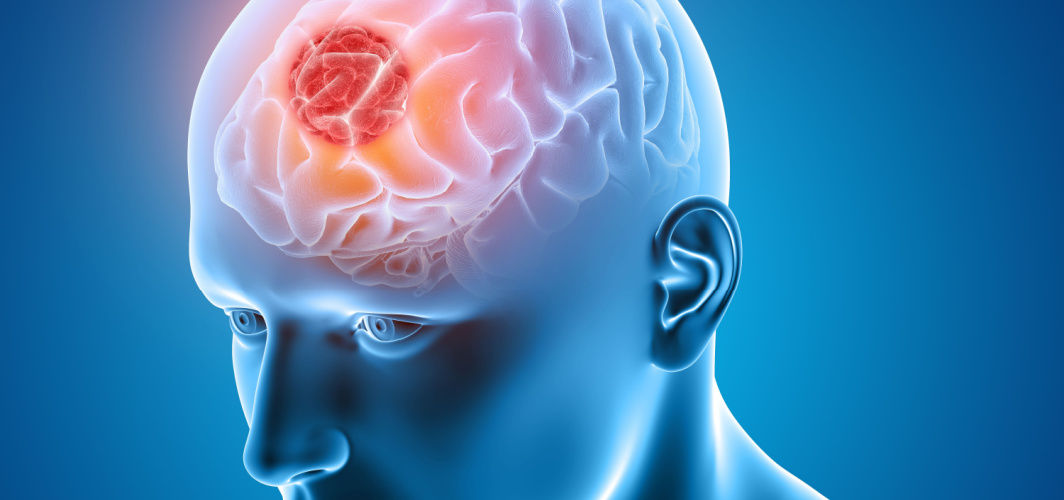Neurology
9 Early Symptoms Of Brain Tumors
7 min read
By Apollo 24|7, Published on - 24 August 2023
Share this article
0
0 like

Brain tumors are a significant health concern in India, with an estimated prevalence of 5-10 cases per 1lac people. Brain tumours are abnormal growths that occur within the brain. They can develop in any part of the brain and can potentially affect one's health in various ways. The incidence of brain tumours varies across different age groups, with some studies suggesting that it is higher among children and older adults. By recognising the early warning signs, individuals can seek timely medical intervention and increase their chances of successful treatment.
Early Signs of Brain Tumor
Early detection and recognition of brain tumor symptoms play a crucial role in improving treatment outcomes and overall prognosis. Here are 9 such early signs of brain tumor:
1. Headaches
Headaches are a common symptom experienced by many individuals and may not necessarily be a cause for concern. However, in some cases, they can be an early sign of a brain tumour. It is important to be aware of the specific characteristics of headaches associated with brain tumors in order to differentiate them from regular headaches. Headaches caused by brain tumours:
- Are often persistent
- Become more frequent over time
- Might wake you up from sleep
- May worsen upon waking up in the morning.
If you experience persistent headaches, especially if they are new, severe or worsening over time, it is crucial to consult a healthcare professional.
2. Seizures
Seizures can be one of the early warning signs of a brain tumour. These abnormal electrical activities in the brain can manifest in different ways, depending on the location of the tumour. Here are some key points to understand about seizures and their connection to brain tumours:
- Occurrence: Seizures occur when there is a sudden surge of electrical activity in the brain. This can cause changes in behaviour, movements, sensations or loss of consciousness.
- Types: Different types of seizures may occur, including focal seizures, which start in a specific part of the brain, and generalised seizures, which involve both sides of the brain.
- Patient experience: The location of the brain tumour can determine the type of seizure experienced. For example, if the tumour is in the frontal lobe, the person may experience changes in behaviour or movements. If it is in the temporal lobe, they may have strange sensations or lose consciousness.
- Connection to brain tumour: Seizures alone are not enough to diagnose a brain tumour, but they can be an important symptom that warrants further investigation.
3. Vision Changes
Vision changes can be an early symptom of a brain tumour. It is important to pay attention to any visual disturbances or changes in vision, as they may indicate an underlying issue. Warning signs of a brain tumour include:
- Blurred vision
- Double vision
- Loss of peripheral vision
If you experience any of these symptoms, it is crucial to consult an ophthalmologist for further evaluation. An ophthalmologist may conduct tests such as visual acuity tests, visual field tests and imaging studies to get a better understanding of your condition.
4. Cognitive and Memory Problems
Cognitive and memory problems can often be early signs of a brain tumour. If you or someone you know is experiencing difficulty remembering things, trouble concentrating or a decline in cognitive abilities, it is important to consider the possibility of a brain tumour.
Tumours can put pressure on different areas of the brain, affecting its normal functioning. Here are some key points to keep in mind about cognitive and memory problems as potential symptoms of a brain tumour:
- Memory loss: Difficulty remembering recent events or struggling to recall familiar information may indicate a problem in the brain.
- Trouble concentrating: A brain tumour can affect your ability to focus and concentrate on tasks, leading to decreased productivity.
- Cognitive decline: If you notice a decline in your cognitive abilities, such as problem-solving skills or decision-making abilities, it could be a sign of an underlying issue.
5. Mood and Personality Changes
Notable shifts in mood, personality or behaviour can be potential red flags for brain tumours. These changes may include:
- Sudden outbursts of anger
- Irritability
- Depression or anxiety
- Uncharacteristic social withdrawal
- Loss of interest in activities you once enjoyed
Understanding the impact of brain tumours on emotional regulation and social interactions is crucial for early detection and intervention.
6. Balance and Coordination Issues
The presence of a tumour in the brain can disrupt the normal functioning of motor skills, leading to difficulties in maintaining balance and coordination. The disruption in balance and coordination occurs because the tumour may press against certain areas of the brain responsible for controlling these functions.
It is important to note that these symptoms can also be indicative of other conditions, so it is crucial to consult a healthcare professional for an accurate diagnosis.
7. Nausea and Vomiting
The brain's control centre, known as the area postrema, is responsible for regulating nausea and vomiting. When a brain tumour develops and affects this area, it can disrupt the normal functioning of these processes. This disruption may result in chronic or recurring episodes of nausea and vomiting.
Nausea and vomiting can be caused by many other factors as well. However, if you notice these symptoms occurring frequently and without any clear triggers, it is crucial to consult a healthcare professional for a thorough evaluation.
8. Fatigue and Weakness
Although it is common to feel tired after a long day or lack energy when fighting off cold, persistent fatigue and weakness that does not improve with rest could be cause for concern.
Possible explanations for fatigue and weakness related to brain tumours include the tumour pressing on certain areas of the brain, disrupting normal functioning. Additionally, the body's immune response to the tumour can also contribute to feelings of fatigue. However, it is important to get tested thoroughly before confirming a diagnosis.
9. Speech Difficulties
If you notice slurred speech or have difficulty finding words, it is important to seek medical attention for a comprehensive evaluation. These symptoms may be connected to brain tumours, which can affect the part of the brain responsible for language processing.
However, these symptoms can also be caused by various other conditions, so you may require a thorough examination, including neurological assessments and imaging tests if necessary, to determine the underlying cause of your symptoms.
Summary
Recognising the early symptoms of brain tumours is crucial for prompt diagnosis and effective treatment. It is important to remember that while experiencing one or two of these symptoms does not necessarily indicate the presence of a brain tumour, it is always better to err on the side of caution and consult a healthcare professional. If you or a loved one experiences any of the warning signs mentioned in this article, do not hesitate to reach out to a healthcare professional.
FAQs
Q. How common are brain tumours?
Brain tumours are relatively rare, with an incidence rate of approximately 10 per 1 lac people in India.
Q. Can a brain tumour cause headaches alone?
Headaches can be a symptom of a brain tumour, but they are also commonly caused by other factors such as migraines, tension headaches or sinusitis.
Q. What age group is most affected by brain tumours?
Brain tumours can occur at any age, but certain types, such as medulloblastomas, are more common in children while glioblastomas are more common in adults.
Q. Can a brain tumour cause personality changes?
Yes, certain types of brain tumours can affect the areas of the brain responsible for mood and behaviour, leading to personality changes.
Q. How are brain tumours diagnosed?
Diagnostic tests for brain tumours may include imaging tests like MRI or CT scans, neurological exams and sometimes a biopsy to determine the type of tumour.
Medically reviewed by Dr Sonia Bhatt.
Neurology
Consult Top Neurologists
View AllLeave Comment
Recommended for you

Neurology
Depression Can Increase The Risk Of Stroke…Know How!
Recent studies have found that those with depression are more likely to experience strokes, potentially due to the impact of depression on cardiovascular health. So if you're feeling down, it's important to seek help not just for your mental health but for your physical health as well.

Neurology
5 Reasons Why Your Parents Are Losing Their Balance
Balance issues occur out of nowhere and start decreasing a person's quality of life. The human body depends on many systems to enable free movement without causing any falls. Damage to the brain can lead to severe balance disorders. In this article, you will find out the reasons behind the loss of balance and how to prevent it.

Neurology
Five Most Bizarre Addictions That May Affect Your Health
Human beings are vulnerable to getting addicted to almost anything. The human brain releases chemicals that often associate bad habits with joy and happiness. This article highlights the top 5 weirdest addictions that can have an impact on your health.
Subscribe
Sign up for our free Health Library Daily Newsletter
Get doctor-approved health tips, news, and more.
Recommended for you

Neurology
Depression Can Increase The Risk Of Stroke…Know How!
Recent studies have found that those with depression are more likely to experience strokes, potentially due to the impact of depression on cardiovascular health. So if you're feeling down, it's important to seek help not just for your mental health but for your physical health as well.

Neurology
5 Reasons Why Your Parents Are Losing Their Balance
Balance issues occur out of nowhere and start decreasing a person's quality of life. The human body depends on many systems to enable free movement without causing any falls. Damage to the brain can lead to severe balance disorders. In this article, you will find out the reasons behind the loss of balance and how to prevent it.

Neurology
Five Most Bizarre Addictions That May Affect Your Health
Human beings are vulnerable to getting addicted to almost anything. The human brain releases chemicals that often associate bad habits with joy and happiness. This article highlights the top 5 weirdest addictions that can have an impact on your health.



